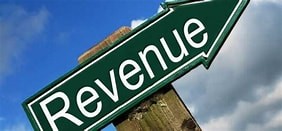
I frequently hear people say that they researched their company and based on that research the company should sell as a percentage of revenue, perhaps as high as 100% or more. Let’s dissect this. Suppose two different businesses have the same revenue and for whatever reason the profit is quite different. Revenue would not necessarily be an appropriate way to estimate the market value for each of these businesses.
Obviously, revenue is critical to any business, but is it a barometer of the valuation of any particular company? Perhaps not.
When people quote the relationship between revenue and sales price, they are possibly extracting it from a database that accumulated a number of transactions. The database then shows the average relationship between revenue and sales price. That may be an average for the database, but it may not have a lot to do with the specific company at hand.
In my view, the preferred metric, for a specific business, is cash flow which is usually referred to as either EBITDA (Earnings Before Interest Taxes Depreciation and Amortization) or SDE (Seller’s Discretionary Earnings). SDE represents the total financial benefit to the owner and includes salary, the business’ profit and benefits such as an automobile and health benefits.
Certainly, the same databases that provide the average revenue provide EBITDA and SDE. I believe that the averages using a multiple of EBITDA or SDE are more indicative of a sales price than revenue. The reason being – cash is what pays the bills. Cash after revenue and expenses will pay the new owner’s salary, returns the owner’s investment and pays the debt. Banks look at the business and perform a debt capacity analysis to determine how much debt the business’ cash flow can service – and as a result – how much the buyer / new owner can borrow towards a purchase price.
Naturally when an M&A Broker gets involved and the owner says “my (advisor, brother-in-law, country club friend, etc.) said that the business should sell for (X of) revenue”, the broker is working with a business owner who has a number embedded in their head. The broker frequently must explain why a metric based on revenue may not be accurate for THEIR business. It can be a delicate discussion because although a broker is armed with facts, he or she may be contradicting information received from a trusted advisor of the owner. In selling a business it is important for the M&A Broker to collaborate closely with the owner’s advisors and starting off on the right foot is helpful but allowing a false pretense to perpetuate in the owner’s thinking is not productive for anyone involved.
My advice to owners and their advisors is to focus their analysis on cash flow and use the revenue metric as perhaps a secondary factor at best.


